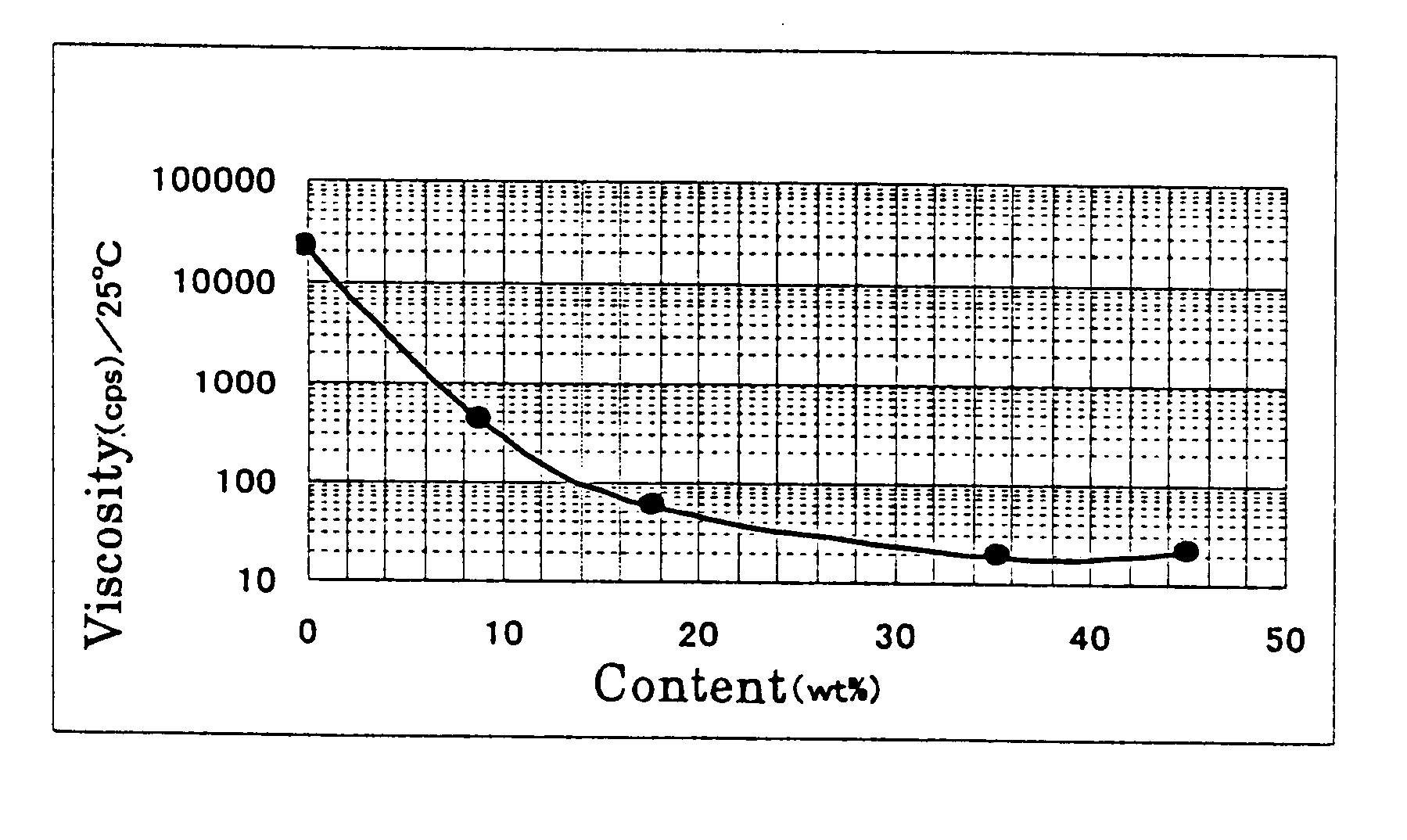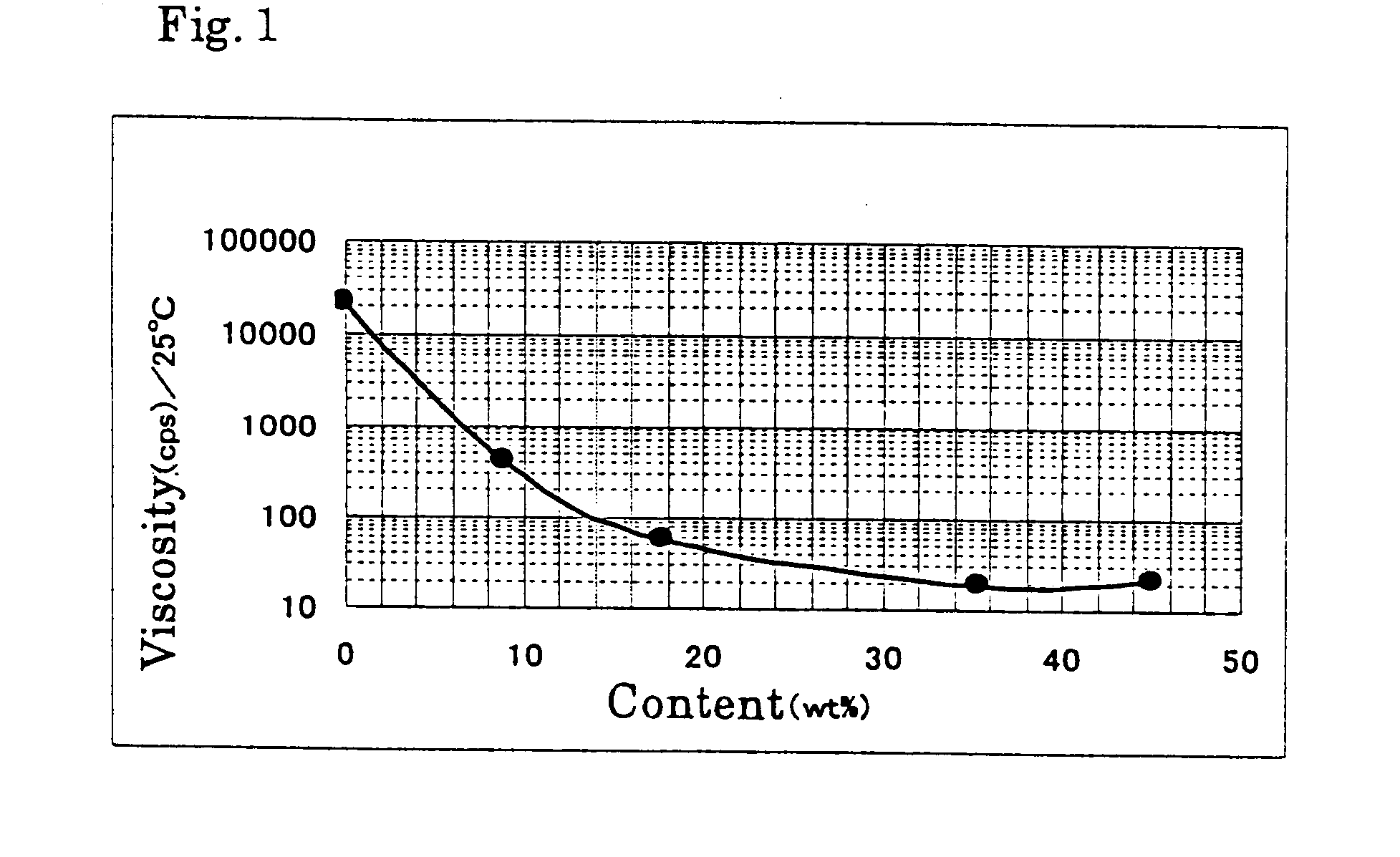Method for preparing N-long chain acyl neutral amino acid
a technology of acyl, which is applied in the field of preparing n-long-chain acyl neutral amino acid, can solve the problems of insufficient stirring at a high concentration, further deterioration of purity, and difficulty in obtaining a high-purity compound
- Summary
- Abstract
- Description
- Claims
- Application Information
AI Technical Summary
Benefits of technology
Problems solved by technology
Method used
Image
Examples
example 1
Preparation of N-coconut Oil Fatty Acid Acyl-glycine Salt
30.0 g of glycine was dissolved in 189 g of water, 41 g of isopropanol (content of hydrophilic organic solvent: 17.8 wt %) and 9.5 g of sodium hydroxide to prepare an aqueous solution at pH 10. This aqueous solution was added with 87.6 g of coconut oil fatty acid chloride over about 1 hour, while a pH was adjusted to 10 by using 27% NaOH. During this operation, the reaction temperature was maintained at 15 to 20.degree. C. After the addition of the acid chloride, the reaction mixture was stirred at the same temperature for about 1 hour. About 23% of N-coconut oil fatty acid acyl-glycine was contained in 437 g of the resulting reaction mixture, and the acylation purity was 96%. The resulting reaction mixture was adjusted to pH 1.8 with addition of 30.3 g of 75% sulfuric acid and then heated to 70.degree. C. After stirring for 15 minutes, the reaction mixture was left standing to allow the reaction mixture separated into an orga...
examples 2 and 3
Preparation of N-coconut Oil Fatty Acid Acyl-glycine Salt
A reaction was performed in the same manner as in Example 1, except that tert-butanol (Example 2) or acetone (Example 3) was used instead of isopropanol. For each of the solvents, the reaction mixture obtained was found to contain about 23% of N-coconut oil fatty acid acyl-glycine. Acylation purities were 97% and 96%, respectively.
examples 4 , 5
Examples 4, 5, and 6
In the reaction of Examples 2, viscosity of the reaction mixture was measured with a change of a content of tert-butanol in the reaction solvent. The results are shown in FIG. 1. The reaction conditions were the same as those applied in Example 2. It can be understood that a sufficient decrease of viscosity of the reaction mixture was attained by using tert-butanol as the hydrophilic organic solvent. In Example 4, tert-butanol concentration was 8.9% (tert-butanol (20.5 g) / water (209.5 g)), in Example 5, tert-butanol concentration was 35.4% (tert-butanol (81.5 g) / water (148.5 g)), and in Example 6, tert-butanol concentration was 45.0% (tert-butanol (103.5 g) / water (126.5 g)).
PUM
| Property | Measurement | Unit |
|---|---|---|
| temperature | aaaaa | aaaaa |
| pH | aaaaa | aaaaa |
| reaction temperature | aaaaa | aaaaa |
Abstract
Description
Claims
Application Information
 Login to View More
Login to View More - R&D
- Intellectual Property
- Life Sciences
- Materials
- Tech Scout
- Unparalleled Data Quality
- Higher Quality Content
- 60% Fewer Hallucinations
Browse by: Latest US Patents, China's latest patents, Technical Efficacy Thesaurus, Application Domain, Technology Topic, Popular Technical Reports.
© 2025 PatSnap. All rights reserved.Legal|Privacy policy|Modern Slavery Act Transparency Statement|Sitemap|About US| Contact US: help@patsnap.com


